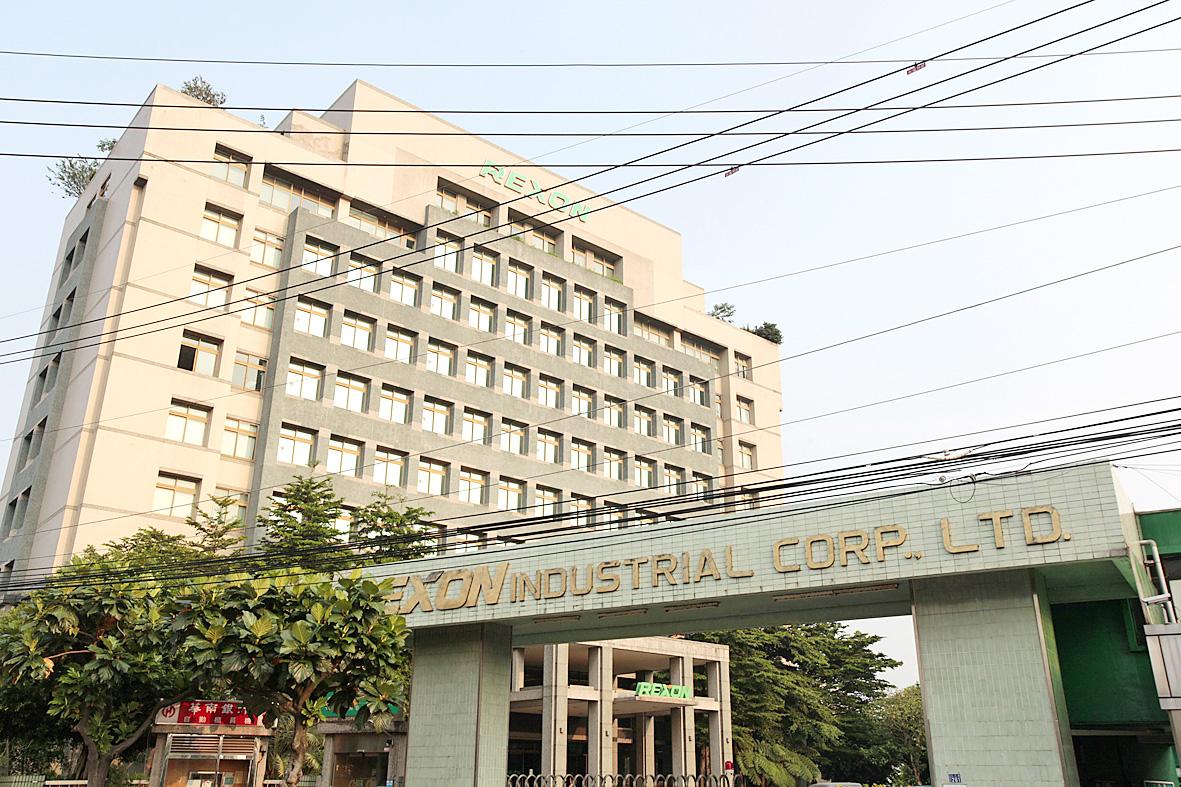Rexon Industrial Corp Ltd (力山工業), a maker of fitness equipment and power tools, saw its shares drop 15.63 percent in the past two sessions after a major client, Peloton Interactive Inc, last week announced recalls of its Tread+ and Tread treadmills.
In a statement on Wednesday last week, Peloton said that it had reached an agreement with the US Consumer Product Safety Commission to recall and stop distribution of its Tread+ and Tread products in the US, refund consumers, and work on additional hardware modifications, following reports that a child died and others were hurt in accidents involving its treadmills.
Since 2017, Rexon has gradually increased the contribution of fitness equipment to its overall revenue, becoming a major supplier for Peloton’s exercise bikes, and Trade+ and Tread treadmills.

Photo: Chan Chao-yang, Taipei Times
Rexon also manufactures fitness equipment for other global brands, such as Life, Precor, True and Freemotion.
Last year, fitness equipment revenue accounted for 77.6 percent of Rexon’s revenue, with Peloton contributing about 71 percent, Jih Sun Securities Investment Consulting Co (日盛投顧) said.
“At present, Rexon has not commented on the recalls. Given Peloton’s large-scale recalls and treadmill modifications, we believe that Peloton might request Rexon to slow down the shipment of treadmills and repair those products,” Jih Sun said in a note on Friday.
“In addition, it was originally expected that Tread would be launched in the US at the end of May and start to contribute revenue. But due to the recall, the launch of Tread might be delayed until the third quarter, which is expected to have a certain degree of impact on Rexon’s business.”
In the US market, the Tread product was only sold as part of a limited invitation-only release from November last year to March, Peloton said in a statement.
Taichung-headquartered Rexon on Friday reported revenue of NT$1.47 billion (US$52.7 million) for last month, up 197.58 percent from a year earlier and hitting the highest for the month of April, as shipments of exercise bikes and treadmills rose amid the COVID-19 pandemic.
In the first four months of the year, cumulative revenue totaled NT$5.51 billion, an annual increase of 188.04 percent and also the highest for the same period in the company’s history, company data showed.
Net profit in the first quarter increased 264 percent year-on-year to NT$324.46 million, with earnings per share rising from NT$0.49 to NT$1.79, a company financial statement showed.
Rexon shares on Friday closed 6.34 percent lower at NT$78.3 in Taipei trading, while Jih Sun downgraded the stock to “neutral” from “buy.”

Taiwan Semiconductor Manufacturing Co (TSMC, 台積電) yesterday said that its investment plan in Arizona is going according to schedule, following a local media report claiming that the company is planning to break ground on its third wafer fab in the US in June. In a statement, TSMC said it does not comment on market speculation, but that its investments in Arizona are proceeding well. TSMC is investing more than US$65 billion in Arizona to build three advanced wafer fabs. The first one has started production using the 4-nanometer (nm) process, while the second one would start mass production using the

A TAIWAN DEAL: TSMC is in early talks to fully operate Intel’s US semiconductor factories in a deal first raised by Trump officials, but Intel’s interest is uncertain Broadcom Inc has had informal talks with its advisers about making a bid for Intel Corp’s chip-design and marketing business, the Wall Street Journal reported, citing people familiar with the matter. Nothing has been submitted to Intel and Broadcom could decide not to pursue a deal, according to the Journal. Bloomberg News earlier reported that Taiwan Semiconductor Manufacturing Co (TSMC, 台積電) is in early talks for a controlling stake in Intel’s factories at the request of officials at US President Donald Trump’s administration, as the president looks to boost US manufacturing and maintain the country’s leadership in critical technologies. Trump officials raised the

‘SILVER LINING’: Although the news caused TSMC to fall on the local market, an analyst said that as tariffs are not set to go into effect until April, there is still time for negotiations US President Donald Trump on Tuesday said that he would likely impose tariffs on semiconductor, automobile and pharmaceutical imports of about 25 percent, with an announcement coming as soon as April 2 in a move that would represent a dramatic widening of the US leader’s trade war. “I probably will tell you that on April 2, but it’ll be in the neighborhood of 25 percent,” Trump told reporters at his Mar-a-Lago club when asked about his plan for auto tariffs. Asked about similar levies on pharmaceutical drugs and semiconductors, the president said that “it’ll be 25 percent and higher, and it’ll

CHIP BOOM: Revenue for the semiconductor industry is set to reach US$1 trillion by 2032, opening up opportunities for the chip pacakging and testing company, it said ASE Technology Holding Co (日月光投控), the world’s largest provider of outsourced semiconductor assembly and test (OSAT) services, yesterday launched a new advanced manufacturing facility in Penang, Malaysia, aiming to meet growing demand for emerging technologies such as generative artificial intelligence (AI) applications. The US$300 million facility is a critical step in expanding ASE’s global footprint, offering an alternative for customers from the US, Europe, Japan, South Korea and China to assemble and test chips outside of Taiwan amid efforts to diversify supply chains. The plant, the company’s fifth in Malaysia, is part of a strategic expansion plan that would more than triple